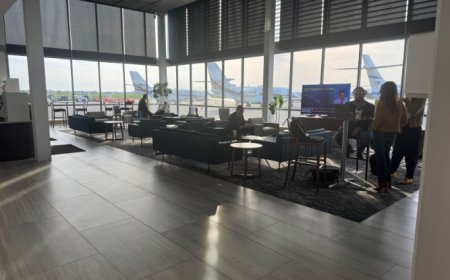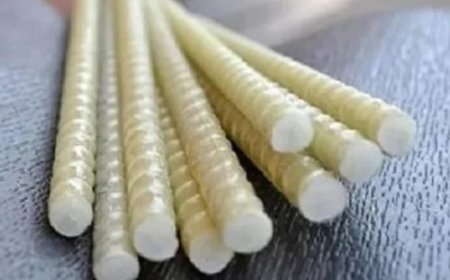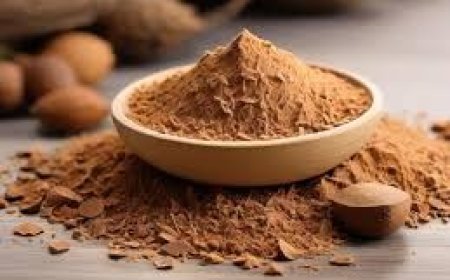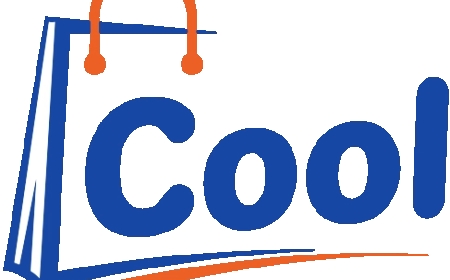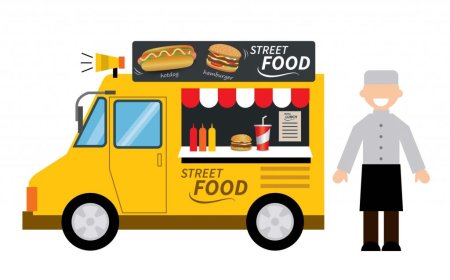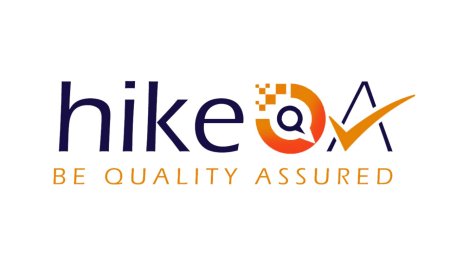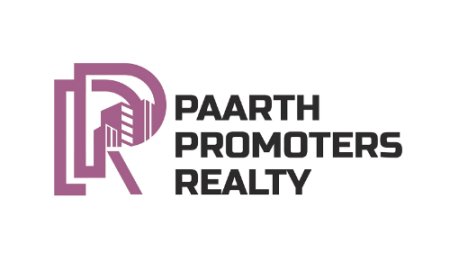Top 10 Sacramento Spots for Craft Workshops
Top 10 Sacramento Spots for Craft Workshops You Can Trust Sacramento, the capital of California, is more than just political history and riverfront parks—it’s a thriving hub for creativity, craftsmanship, and hands-on learning. From pottery studios tucked into historic neighborhoods to woodworking shops powered by local artisans, the city offers a rich tapestry of craft workshops designed for begi
Top 10 Sacramento Spots for Craft Workshops You Can Trust
Sacramento, the capital of California, is more than just political history and riverfront parksits a thriving hub for creativity, craftsmanship, and hands-on learning. From pottery studios tucked into historic neighborhoods to woodworking shops powered by local artisans, the city offers a rich tapestry of craft workshops designed for beginners and seasoned makers alike. But in a landscape where anyone can call themselves a craft instructor, how do you know which workshops are truly worth your time, money, and effort? Trust isnt just a nice-to-haveits the foundation of a meaningful creative experience. This guide reveals the top 10 Sacramento spots for craft workshops you can trust, backed by consistent quality, transparent teaching methods, community reputation, and authentic craftsmanship.
Why Trust Matters
When you enroll in a craft workshop, youre not just paying for materials or spaceyoure investing in guidance, safety, and the transfer of skills that can last a lifetime. A trusted workshop ensures that instructors are experienced, equipment is well-maintained, class sizes are manageable, and the learning environment is inclusive and respectful. In Sacramentos vibrant maker scene, where new studios open regularly, trust becomes the differentiator between a fleeting hobby and a lasting passion.
Untrustworthy workshops often cut corners: instructors with minimal experience, overcrowded classes, outdated tools, or vague curricula. These may offer a quick project, but rarely foster real skill development. Trusted workshops, on the other hand, prioritize student growth over profit. They publish clear learning outcomes, showcase student portfolios, maintain consistent schedules, and welcome feedback. Many have been operating for over five years, earning loyalty through repeat students and word-of-mouth referrals.
Trust also extends to the materials used. Reputable studios source non-toxic, sustainable, and high-quality supplieswhether its lead-free glazes for ceramics, FSC-certified wood for carving, or organic dyes for textile arts. They educate participants on safety protocols, proper tool handling, and environmental responsibility. In a city that values sustainability and community, these values arent optionaltheyre expected.
Additionally, trusted workshops foster community. They host open houses, alumni showcases, and collaborative projects that connect makers beyond the classroom. This sense of belonging is invaluable. Whether youre looking to build a new skill, meet like-minded individuals, or even explore a creative career path, the right workshop becomes a second home.
This guide is built on firsthand research, student testimonials, studio longevity, instructor credentials, and consistent online reviews across platforms like Google, Yelp, and Instagram. Weve eliminated studios with inconsistent scheduling, poor communication, or lack of transparency. What remains are the 10 Sacramento craft workshops you can trustplaces where creativity is nurtured, not rushed.
Top 10 Sacramento Spots for Craft Workshops You Can Trust
1. The Clay Studio Sacramento
Nestled in the heart of Midtown, The Clay Studio Sacramento has been a cornerstone of the citys ceramics community since 2012. Run by a team of certified ceramic artists with degrees from Cal State Long Beach and the University of the Arts, the studio offers structured classes in hand-building, wheel-throwing, and glazing techniques. What sets them apart is their commitment to small class sizesno more than eight students per sessionensuring personalized attention.
Students consistently praise the studios open studio hours, which allow members to practice outside of class time. The kilns are maintained daily, and all glazes are lead-free and non-toxic. They also host quarterly student exhibitions, giving learners a platform to showcase their work in a professional gallery setting. Whether youre making your first mug or refining your sculpting technique, The Clay Studio provides the structure, support, and space to grow.
2. Sacramento Woodworking Collective
For those drawn to the smell of sawdust and the precision of joinery, the Sacramento Woodworking Collective is a rare gem. Located in the East Sac industrial corridor, this nonprofit-run space offers everything from introductory hand-tool classes to advanced cabinetmaking workshops. Instructors are master carpenters with decades of experience in fine furniture and restoration work.
Unlike commercial workshops that focus on quick projects, this collective emphasizes craftsmanship over speed. Students learn to read wood grain, use hand planes, mortise and tenon joints, and finish pieces with natural oils. Safety is paramount: all participants complete a mandatory orientation on tool use, and protective gear is provided. The studio also maintains a tool library, allowing members to borrow equipment for home projects after completing training.
Graduates often return as mentors, creating a cycle of knowledge-sharing that reinforces the studios reputation. Their annual Made in Sacramento craft fair features student-made furniture, cutting boards, and decorative piecesproof of the skill level achieved here.
3. Thread & Needle Fiber Arts Studio
Thread & Needle is Sacramentos premier destination for textile arts, offering workshops in hand embroidery, natural dyeing, weaving, and quilting. Housed in a sunlit, repurposed 1920s bungalow in Land Park, the studio blends vintage charm with modern pedagogy. Instructors are practicing fiber artists who exhibit nationally and teach at UC Davis Extension.
What makes Thread & Needle trustworthy is their emphasis on sustainability. All dyes are plant-basedindigo, madder root, onion skinsand fabrics are either organic cotton, linen, or upcycled vintage textiles. Workshops are structured in progressive levels: beginners start with simple stitches and color theory, while advanced students explore complex resist-dye techniques and tapestry weaving.
The studio also hosts monthly Mend & Make nights, where participants bring worn clothing to repair and transform. This ethos of repair over replacement resonates deeply with Sacramentos eco-conscious community. Their open house events, featuring student textile installations, draw crowds from across the region.
4. Glass & Fire Studio
For the bold and the brilliant, Glass & Fire Studio offers one of the most immersive glassworking experiences in Northern California. Specializing in lampworking (torch-working glass beads) and fusing, the studio provides comprehensive training in a state-of-the-art facility equipped with professional torches, annealing ovens, and safety ventilation systems.
Founded by a former studio assistant to a renowned glass artist from the Pilchuck School, the lead instructor holds certifications from the Glass Art Society and teaches only small groups of four to six students. Each class includes a detailed safety briefing, material sourcing education, and a take-home projectwhether its a set of custom beads or a fused glass plate.
Transparency is a hallmark: students receive a printed guide to materials, costs, and studio rules before their first session. The studio also maintains a public gallery where finished pieces are displayed and sold, with proceeds supporting student scholarships. Their Instagram feed, updated daily with student progress, offers an authentic look at the learning journey.
5. Paper & Ink Sacramento
At Paper & Ink Sacramento, the art of hand lettering, bookbinding, and printmaking comes alive in a bright, airy studio in the Oak Park neighborhood. This is the only place in the city offering certified classes in traditional Japanese bookbinding (sewo and stab binding), as well as hand-set letterpress printing using original 1940s presses.
Instructors are practicing typographers and book artists with exhibitions at the Oakland Museum and the San Francisco Center for the Book. Classes are small, with a maximum of six students, and all materialsincluding handmade paper, archival inks, and brass typeare sourced sustainably. Students leave with not just a project, but a complete handmade book or broadside.
The studio also offers a Papermaking 101 workshop where participants create their own sheets from cotton linters and recycled paper. This hands-on approach to material creation fosters deep appreciation for the craft. Their monthly zine-making nights have become a local institution, attracting writers, illustrators, and designers looking to explore analog publishing.
6. The Forge: Metalworking & Jewelry Lab
For those drawn to the clang of hammers and the glow of molten metal, The Forge is Sacramentos most trusted metalworking studio. Located in a converted warehouse in the River District, it offers beginner to advanced courses in silversmithing, forging, stone setting, and metal etching.
What distinguishes The Forge is its rigorous instructor vetting process. All lead teachers hold degrees in fine arts with a focus on metalsmithing and have at least five years of professional studio experience. Classes are structured in 6-week modules, allowing students to develop techniques gradually. Safety is non-negotiable: students must pass a tool competency test before using torches, grinders, or hydraulic presses.
The studio also maintains a public Make It, Take It wall, where students display their finished jewelry pieces for sale. Proceeds go directly to the maker, reinforcing the studios mission: to empower artists, not just teach skills. Alumni frequently return for advanced workshops in chasing, repouss, and enamel work.
7. Botanica Craft & Dye
Botanica Craft & Dye is a unique fusion of herbalism and textile art, located in a quiet corner of North Sacramento. This workshop specializes in natural dyeing using plants grown on-siteindigo, weld, coreopsis, and marigoldas well as eco-printing on fabric and paper using leaves and petals.
The founder, a certified herbalist and textile artist, teaches students how to harvest, prepare, and extract color from botanicals sustainably. Workshops include lessons on mordanting with alum and iron, creating dye charts, and designing botanical prints on silk and cotton. No synthetic dyes are ever used.
What makes Botanica trustworthy is its holistic approach: students learn not just how to dye, but why certain plants yield certain colors, how climate affects pigment, and how to preserve dye baths. The studio partners with local farmers and foragers, ensuring ethical sourcing. Their seasonal workshopslike Autumn Hues or Spring Bloom Dyeingare booked months in advance, a testament to their reputation.
8. The Makers Loft
The Makers Loft is Sacramentos most inclusive craft collective, offering a rotating schedule of workshops in everything from resin art to leather tooling, candle making to woodburning. Located in a converted church in East Sac, the space is ADA-accessible, bilingual (English/Spanish), and welcomes all skill levels.
What sets The Makers Loft apart is their community-first model. Instructors are vetted through a peer-review process, and each class must meet a set of quality benchmarks: clear learning objectives, material transparency, and student feedback collection. The studio also offers sliding-scale pricing and free workshops for youth and seniors.
They host Skill Swap Sundays, where participants teach each other a craft they knowcreating a dynamic, self-sustaining learning ecosystem. Their Instagram showcases real student work, unfiltered and authentic. With over 150 workshops offered annually and a 92% student satisfaction rate, The Makers Loft is a model for ethical, accessible craft education.
9. Sacramento Bookbinding & Paper Arts Center
Specializing in the ancient art of bookbinding, this center is one of only three such studios in California. Housed in a restored 19th-century print shop in Old Sacramento, it offers intensive courses in Coptic binding, Japanese stab binding, leather binding, and conservation techniques for antique books.
Instructors are trained conservators from the Library of Congress and the Getty Conservation Institute. Students work with acid-free paper, archival thread, and genuine leather. Each class includes a lesson in the history of the bookfrom medieval codices to modern zines.
The center also runs a restoration clinic where students assist in repairing damaged books from local libraries and historical societies. This real-world application deepens the learning experience and connects students to Sacramentos cultural heritage. Their annual Books as Art exhibit draws scholars, collectors, and artists from across the West Coast.
10. Riverbend Artisan Collective
Located along the American River, Riverbend Artisan Collective is a multi-disciplinary studio that brings together woodworkers, potters, metal artists, and textile makers under one roof. What makes Riverbend unique is its collaborative workshop model: students can take a 3-day intensive in ceramics, then sign up for a woodturning session the following weekall under one membership.
Instructors are all practicing artists who sell their work locally and exhibit regionally. The studio enforces a strict no mass production policyevery project is meant to be unique, handcrafted, and meaningful. Class sizes are capped at seven, and all materials are sourced from California suppliers whenever possible.
They offer a Craft Immersion Program, a 12-week track that allows students to rotate through four different disciplines. Graduates receive a portfolio review and a certificate of completion. Riverbend also hosts weekly Open Studio Nights, where members can work independently with instructor support. Their commitment to slow, intentional making has earned them a loyal following and consistent five-star reviews.
Comparison Table
| Studio Name | Primary Craft | Class Size | Instructor Credentials | Material Ethics | Student Showcases | Membership Options |
|---|---|---|---|---|---|---|
| The Clay Studio Sacramento | Ceramics | 8 max | Certified ceramic artists, MFA holders | Lead-free, non-toxic glazes | Quarterly exhibitions | Yes |
| Sacramento Woodworking Collective | Woodworking | 6 max | Master carpenters, 20+ years experience | FSC-certified, reclaimed wood | Annual craft fair | Yes |
| Thread & Needle Fiber Arts Studio | Textiles, Dyeing | 6 max | Exhibiting fiber artists, UC Davis faculty | 100% plant-based, organic fibers | Monthly open houses | Yes |
| Glass & Fire Studio | Glasswork | 46 max | Glass Art Society certified | Recycled glass, non-toxic frits | Public gallery sales | Yes |
| Paper & Ink Sacramento | Bookbinding, Letterpress | 6 max | Typographers, museum collaborators | Archival, handmade paper | Zine nights, annual exhibit | No |
| The Forge: Metalworking & Jewelry Lab | Metalwork, Jewelry | 6 max | MFA Metalsmithing, professional artisans | Recycled silver, ethically sourced stones | Make It, Take It wall | Yes |
| Botanica Craft & Dye | Natural Dyeing | 5 max | Certified herbalist + textile artist | On-site botanicals, zero synthetics | Seasonal dye exhibits | No |
| The Makers Loft | Multi-disciplinary | 68 max | Peer-reviewed instructors | Eco-friendly, non-toxic supplies | Skill Swap Sundays | Yes |
| Sacramento Bookbinding & Paper Arts Center | Bookbinding | 5 max | Getty and Library of Congress trained | Archival, conservation-grade materials | Books as Art exhibit | Yes |
| Riverbend Artisan Collective | Multi-disciplinary | 7 max | Exhibiting regional artists | California-sourced, sustainable | Open Studio Nights | Yes |
FAQs
How do I know if a craft workshop is trustworthy?
A trustworthy workshop clearly outlines its curriculum, instructor qualifications, and safety protocols. Look for studios that have been operating for five years or more, offer small class sizes, and provide student portfolios or public showcases. Avoid places that pressure you to sign up immediately or refuse to share instructor bios.
Are materials included in the workshop fee?
Most trusted workshops include basic materials in the fee, especially for beginner classes. However, advanced workshops may require you to purchase specialty tools or premium materials. Always ask for a materials list before registering. Reputable studios will provide this transparently.
Can I take workshops if I have no prior experience?
Yes. The studios listed here all offer beginner-friendly classes designed for absolute newcomers. Many even provide tool kits or starter materials for first-time participants. The key is to choose a studio that emphasizes learning over performance.
Do these workshops offer certificates or credentials?
Some, like Riverbend Artisan Collective and the Sacramento Bookbinding Center, offer completion certificates. Others focus on skill mastery rather than formal credentials. If youre seeking credentials for professional purposes, ask in advance which studios provide documentation.
Are the workshops accessible to people with disabilities?
Several studios, including The Makers Loft and Riverbend Artisan Collective, are ADA-compliant and offer adaptive tools. Its always best to contact the studio directly to discuss your needstheyre often happy to accommodate.
How far in advance should I book a workshop?
Popular studios like The Clay Studio and Botanica Craft & Dye often fill up 48 weeks in advance, especially for seasonal workshops. For weekend or evening classes, booking 23 weeks ahead is recommended. Sign up for email lists to get early access to new schedules.
Can I bring my own materials?
In most cases, yesbut only if approved by the instructor. Some materials, especially in glass or metalwork, require specific safety standards. Always consult with the studio before bringing your own supplies.
What if I miss a class?
Most trusted studios allow one make-up session per course, especially if notified in advance. Some offer recorded demos or private review hours for missed content. Avoid studios that offer no flexibilitythis often indicates poor student support.
Do these studios offer gift certificates?
All ten studios listed here offer gift certificates, either online or in person. Theyre a thoughtful way to introduce someone to a new craftand many recipients return as regular students.
Are there workshops for teens or children?
Yes. The Makers Loft, The Clay Studio, and Riverbend Artisan Collective all offer youth programs. These are designed with age-appropriate tools and supervision. Check each studios website for age requirements and parental consent forms.
Conclusion
In Sacramentos ever-growing creative scene, trust is the quiet force that separates fleeting trends from lasting craft. The ten studios highlighted here have earned their reputation not through flashy marketing, but through consistency, integrity, and deep respect for the art they teach. Whether youre drawn to the rhythmic turn of a pottery wheel, the scent of wood shavings, the vibrant bloom of a plant-dyed scarf, or the quiet precision of hand-bound pages, theres a place here that will meet you where you areand help you grow.
These workshops are more than classes. Theyre communities. Theyre sanctuaries for patience, attention, and the slow, satisfying work of making something real with your hands. In a world that moves too fast, they remind us that craftsmanship is a form of resistancea way to reclaim time, meaning, and connection.
Choose wisely. Choose a studio that values your time, your safety, and your growth. Choose one that doesnt just teach you how to make somethingbut why it matters. The right workshop doesnt just fill your hands with tools; it fills your life with purpose.
Visit them. Sign up. Get your hands dirty. And let Sacramentos most trusted craft spaces become the foundation of your next creative chapter.






